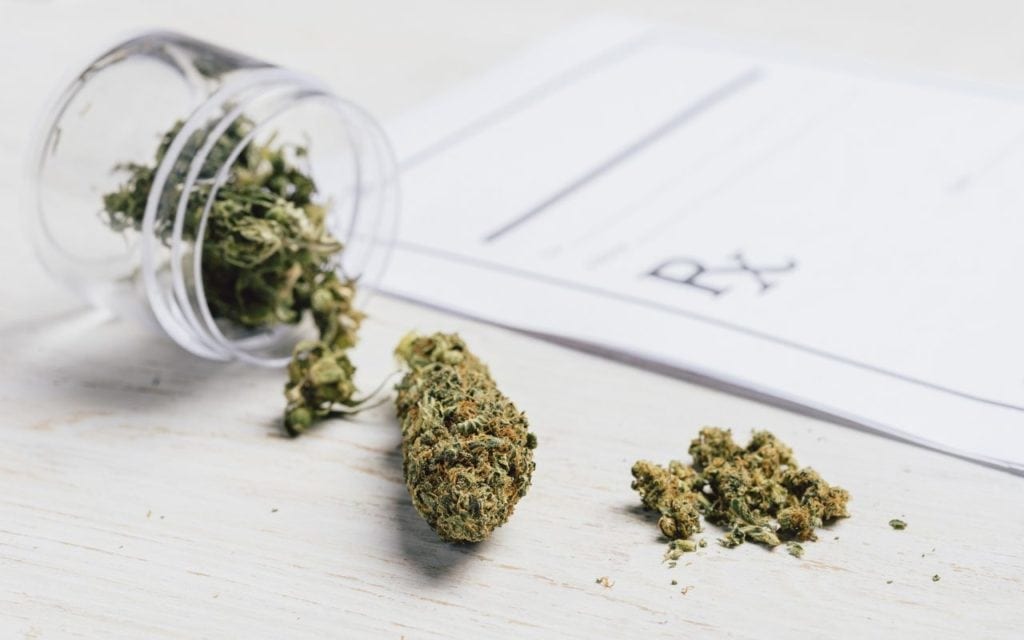Health and Wellness News, Politics, Research
UN Drug Committee Finds Cannabis an Effective, ‘Relatively Safe Drug’
The World Health Organization met in Geneva, Switzerland, last week to review the agency’s first-ever review of the health and safety of cannabis.
It’s an early step as the global health agency, an office of the United Nations, prepares to issue a recommendation to the UN on the “need for and level of international control” over the plant, which is broadly prohibited under international drug treaties.
The top-level takeaway: Cannabis, the report found, is a “relatively safe drug” that millions of people are already using to help manage a wide range of medical conditions.
As part of the report, the agency surveyed 953 cannabis patients from 31 countries. Most said they’d been using cannabis-based medicines for several years and are currently being advised on treatment by a doctor, although a majority said they’d also tried cannabis prior to getting a physician’s recommendation.
The medical conditions for which cannabinoids were most often used as treatment were back pain, sleep disorders, anxiety and depression, post-injury pain, and multiple sclerosis. Of those, pain, sleep disturbances, and anxiety were most common.
In the United States, where an estimated 2.2 million patients use medical marijuana, pain is the most common qualifying condition. Pain also ranked high among patients in Israel and Canada, while 30% of British patients reported using cannabis to help treat multiple sclerosis.
Globally, an estimated 3% to 5% of people have tried cannabis for nonmedical reasons.
Decreasing Opioid Use
The report also analyzed a number of studies, including two that found no significant demographic differences between adults who use cannabis medically and those who consume for nonmedical reasons.
One study found that medical cannabis users had higher daily cannabis use than recreational consumers. While medical patients were more likely to be in poorer health than adult-use consumers, the study found, patients also had lower levels of both alcoholism and nonprescription drug use.
A handful of other studies in recent years have suggested that medical cannabis may even help decrease opioid prescriptions, abuse, and overdose deaths.
“People with chronic pain can use less narcotics when you use or supplement their pain control with cannabis products,” said David J. Ores, a New York–based physician who was not involved in the report. “Also, medically prescribed cannabis brings patients into the healthcare system for associated problems such as depression, anxiety addiction, etc.”
Bring Down Research Barriers
But cannabis research, the WHO noted, is lagging. Despite immense public interest, especially in regions hit hard by the opioid epidemic, very few clinical trials have taken place—largely thanks to prohibition.
“Barriers to research in the USA include the difficulty of navigating through several federal agencies (including the aforementioned DEA, FDA), as well as research ethics boards and local and state oversight concerns,” the report noted. “There are also issues related to quality, quantity, and kind of product available from the current single federal source of cannabis for research use and the lack of adequate funding sources.”
Effective and Relatively Safe
The WHO report also identified a number of other developments around medical cannabis:
- Appetite stimulation and weight gain occurred in HIV/AIDS patients who used medical cannabis. A safety study also showed that neither dronabinol—a synthetic form of THC, often sold under the brand name Marinol—nor smoked cannabis adversely affect patients’ viral load.
- Clinical trials have shown cannabis to be an effective analgesic for chronic pain. The results indicated that vaping cannabis reduced neuropathic pain and pain associated with diabetic peripheral neuropathy.
- Patients with Parkinson’s disease who smoked cannabis reported significant improvement in motor ability.
- Nabiximol, a plant-derived blend of THC and CBD that’s sold under the brand name Sativex, has been shown to help reduce symptoms of multiple sclerosis, such as spasticity. (Canada and Israel have approved nabiximols for neuropathic pain in MS and for chronic pain related to cancer. The United States has not yet granted similar approval.)
- Cannabis oil containing THC can be beneficial for patients suffering from dementia, motor neuron disease, and neurogenic issues such as bladder control problems and muscle spasms.
- Considerable evidence suggest that cannabis and specific cannabinoids are effective at relieving nausea and vomiting due to chemotherapy. The United States currently has two FDA-approved cannabinoids, dronabinol and nabilone, for this purpose.
WHO committee meetings are generally closed to the public. Individuals were allowed to present public testimony during an open session on June 4. The full report can be found online.
Read more from the source…
The source: Leafly



